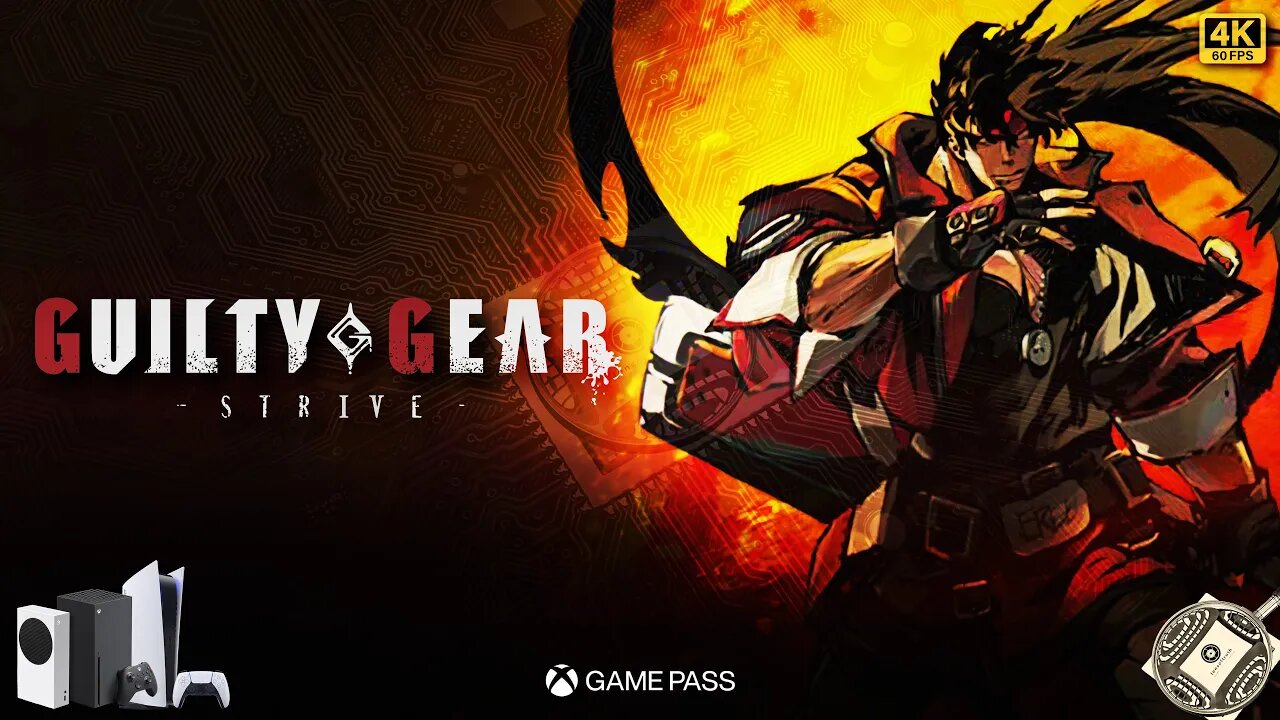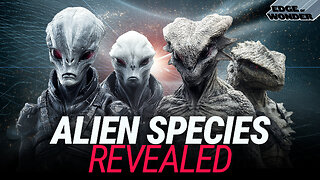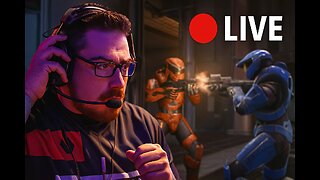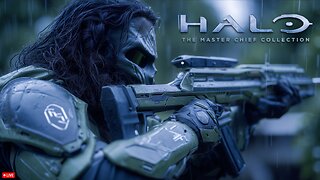Premium Only Content

Guilty Gear -Strive- Analysis on Xbox Series X/S and PS5 - 4K
Analysis of performance and image quality of Guilty Gear Strive on Xbox Series X/S and PS5.
Index:
Intro 00:00
Frame Rate Analysis 00:41
Resolution Xbox SS Analysis 02:24
Resolution Xbox SX Analysis 02:49
Resolution PS5 Analysis 03:14
Shadows Xbox SS Analysis 03:39
Shadows Xbox SX Analysis 03:58
Shadows PS5 Analysis 04:16
Textures Xbox SS Analysis 04:34
Textures Xbox SX Analysis 04:53
Textures PS5 Analysis 05:11
Loading Analysis 05:29
Frame Rate Analysis 06:03
Resolution Xbox SS Analysis 07:46
Resolution Xbox SX Analysis 08:11
Resolution PS5 Analysis 08:36
Shadows Xbox SS Analysis 09:01
Shadows Xbox SX Analysis 09:19
Shadows PS5 Analysis 09:38
Textures Xbox SS Analysis 09:56
Textures Xbox SX Analysis 10:14
Textures PS5 Analysis 10:33
Loading Analysis 10:51
Technical dictionary:
- AMD FidelityFX™ Super Resolution (FSR):
FidelityFX Super Resolution (FSR) is used to upsample an input image into a higher resolution. There are two versions of FSR with distinctive upscaling technique and image quality.
FSR 1 is a spatial upscaler based on the Lanczos algorithm* requiring an anti aliased lower resolution image.
FSR 2 and 2.1 is a temporal upscaler based on a modified Lanczos* requiring an aliased lower resolution image and utilising the temporal data (such as motion vectors and frame history) and then applies its own anti aliasing pass which replaces the game's temporal anti-aliasing solution.
Quality Preset Scale Factor Render Scale
Performance 2.0x 50.0% (e.g. for 4k: 1080p upscale to 2160p with FSR)
Balanced 1.7x 58.8% (e.g. for 4k: 1270p upscale to 2160p with FSR)
Quality 1.5x 66.6% (e.g. for 4k: 1440p upscale to 2160p with FSR)
* The Lanczos algorithm is an iterative algorithm invented by Cornelius Lanczos that is an adaptation of power methods to find eigenvalues and eigenvectors of a square matrix or the singular value decomposition of a rectangular matrix. It is particularly useful for finding decompositions of very large sparse matrices.
- Cube Mapping Reflections:
A Cubemap is a collection of six square textures that represent the reflections on an environment. The six squares form the faces of an imaginary cube that surrounds an object; each face represents the view along the directions of the world axes (up, down, left, right, forward and back). Cubemaps are often used to capture reflections or “surroundings” of objects; for example skyboxes and environment reflections often use cubemaps.
- Screen Space Reflections (SSR):
Screen space reflections (SSR): a more expensive technique that traces reflection rays in screen space (as opposed to world space in e.g. ray tracing). This is done for each rendered pixel of the reflected surface, using the surface normal and scene depth.
The disadvantage is that objects not captured in the rendered frame cannot appear in the reflections, which results in unresolved intersections and incomplete reflection image.
- Ray-Traced Reflections
Ray-Traced Reflections is a more accurate ray-traced solution to Screen Space Reflection technique (that traces reflection rays in screen space), ray tracing traces reflection rays in world space.
The disadvantage of the technique using ray tracing is the need for a dedicated hardware for accelerating the calculations needed to perform the feature.
- Shadow Mapping
Shadow mapping or shadowing projection is a process by which shadows are added to 3D computer graphics. This concept was introduced by Lance Williams in 1978, in a paper entitled "Casting curved shadows on curved surfaces."[1] Since then, it has been used both in pre-rendered and realtime scenes in many console and PC games. Shadows are created by testing whether a pixel is visible from the light source, by comparing the pixel to a z-buffer or depth image of the light source's view, stored in the form of a texture.
- Simple Shadow Mapping
Simplest possible implementation of Shadow Mapping, without any smoothing or additional features.
- Soft Shadows Mapping
Soft shadows are typically rendered in games by using shadow mapping and Percentage Closer Filtering with a uniform kernel size. The Percentage-Closer Soft Shadows (PCSS) algorithm computes a variable kernel size based on the distance between the relative position of the receiver point, an approximation of the blocker, and the area light.
- Ray-traced Shadows
Ray-traced shadows are generated by tracing the path of rays sampled from a light source. Ray-traced shadows are more accurate than shadow-mapped shadows. All ray-traced shadows are world space shadows.
Facebook Group:
https://m.facebook.com/groups/14589692844998
-
 LIVE
LIVE
SpartakusLIVE
3 hours agoWARZONE NUKE IS BACK?! || Solo Challenge CHAMPION to start, duos w/ the Dawg later
2,984 watching -
 LIVE
LIVE
LFA TV
16 hours agoLFA TV ALL DAY STREAM - FRIDAY 8/22/25
876 watching -
 42:57
42:57
MattMorseTV
1 hour ago🔴Canada just SURRENDERED.🔴
29.7K19 -
 25:00
25:00
Stephen Gardner
1 hour ago🚨YES! Trump DID IT + Bombshell SCOTUS ruling!
5994 -
 LIVE
LIVE
Edge of Wonder
4 hours ago4 Alien Species Revealed by Congressman & AI Creates ‘New Physics’
398 watching -
 LIVE
LIVE
Mally_Mouse
22 hours agoFriend Friday!! 🎉 - Let's Play! - Goose Goose Duck
82 watching -
 LIVE
LIVE
Spartan
2 hours agoRanked + Octopath Traveler 2
54 watching -
 LIVE
LIVE
GrimmHollywood
8 hours ago🔴LIVE • GRIMM HOLLYWOOD • RUMBLE SPARTANS HALO NIGHT • GRIMMDY GAMES • NEW GRIMM FILM
72 watching -
 43:26
43:26
BonginoReport
9 hours agoThe Future Is Bright w/ GOP Youth Advisory Chair CJ Pearson - Hayley Caronia (Ep.118)
67.2K19 -
 LIVE
LIVE
MissesMaam
1 hour ago*Spicy Sips* Friend Friday with Mally_Mouse and Friends!!! 💚✨
82 watching